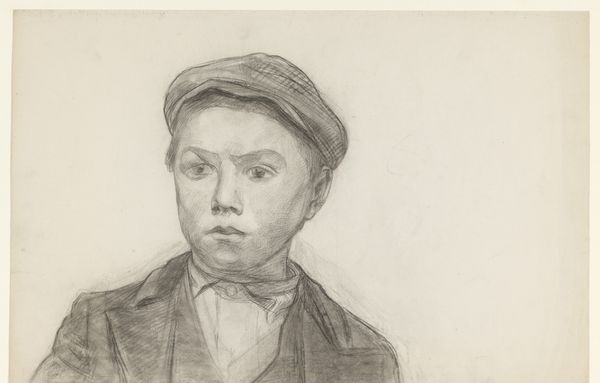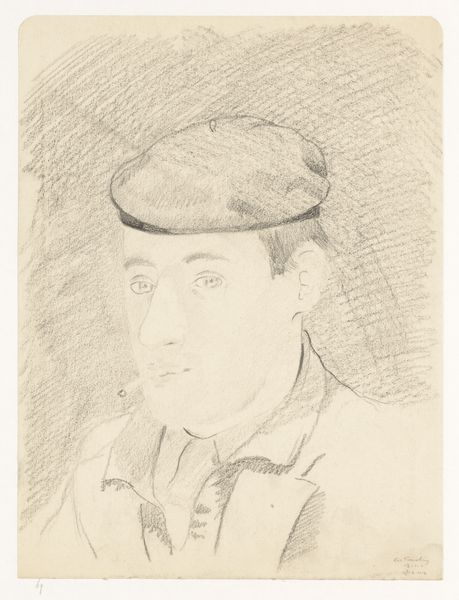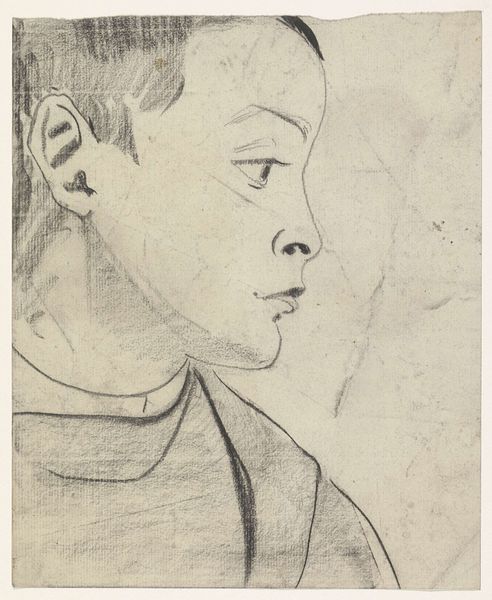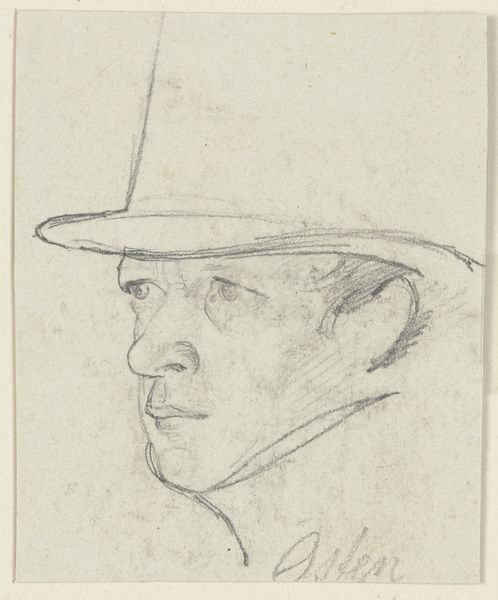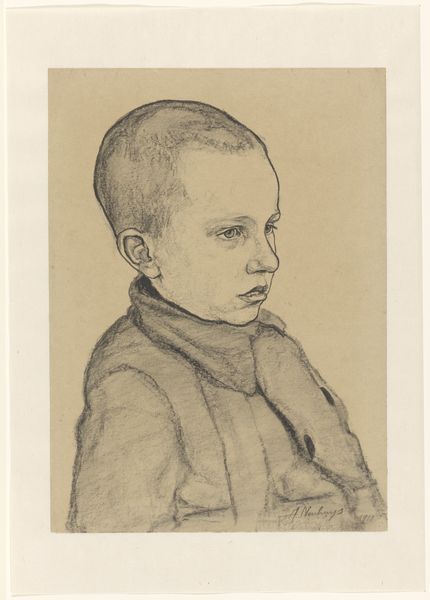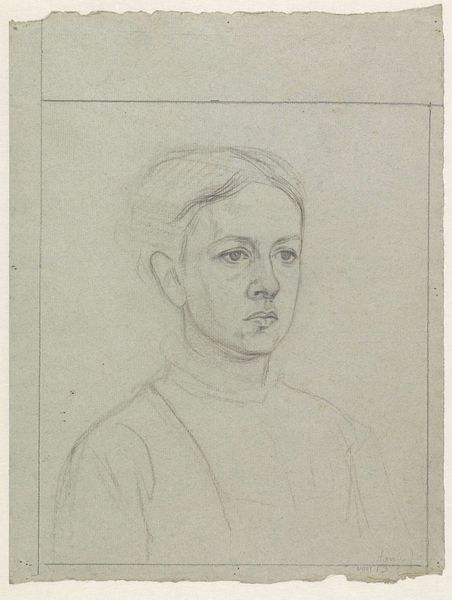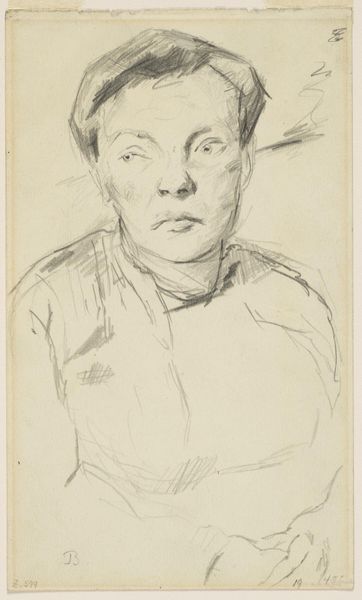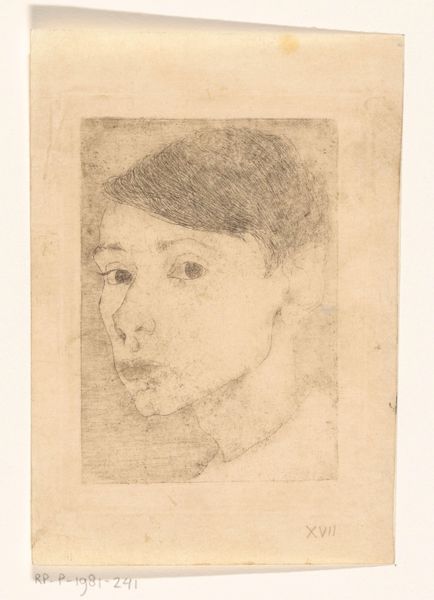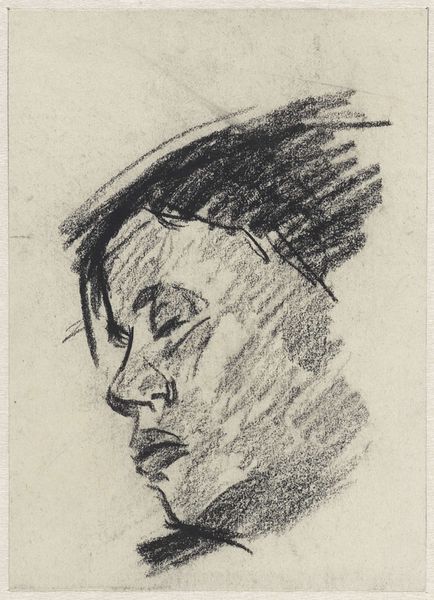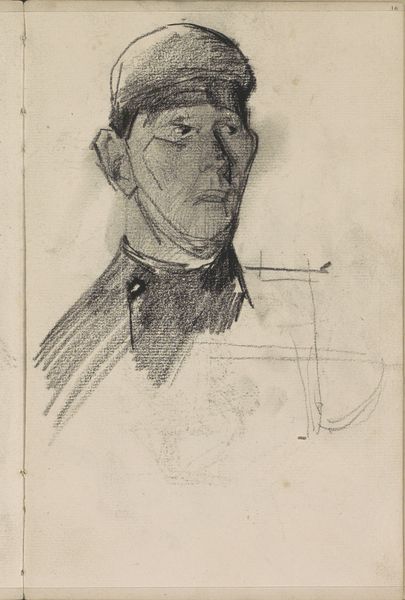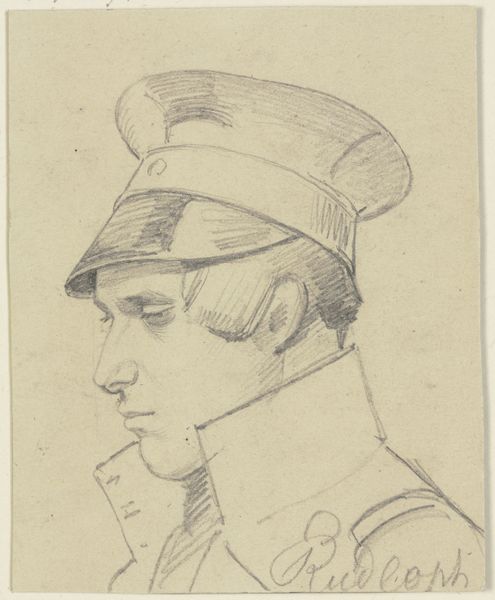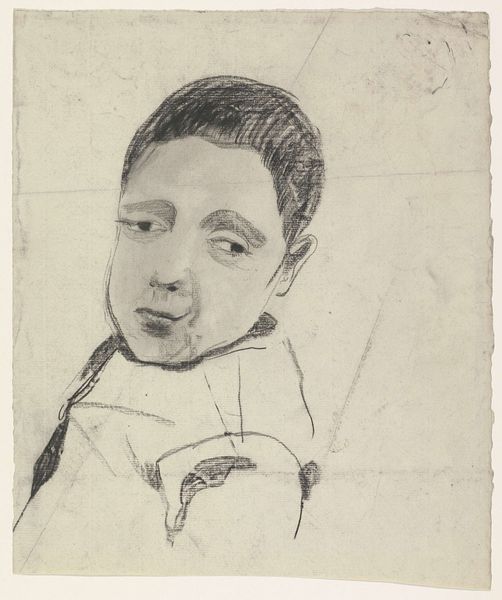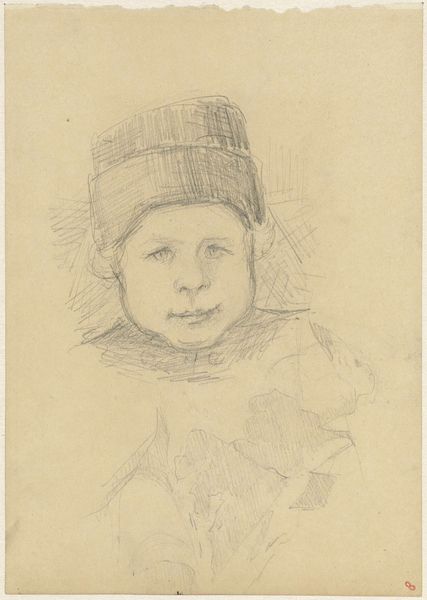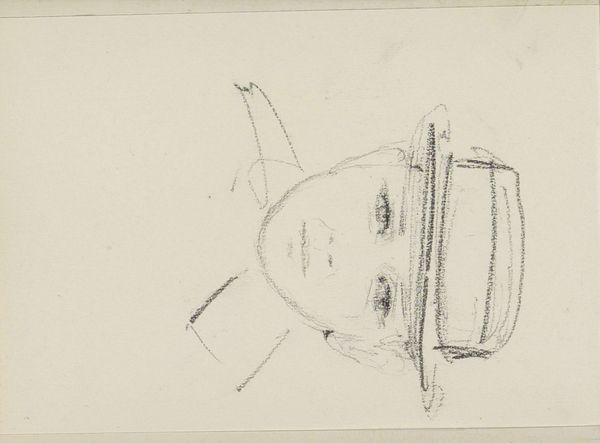
drawing, pencil
#
portrait
#
pencil drawn
#
drawing
#
light pencil work
#
shading to add clarity
#
pencil sketch
#
personal sketchbook
#
portrait reference
#
pencil drawing
#
pencil
#
sketchbook drawing
#
portrait drawing
#
pencil work
#
realism
Dimensions: height 276 mm, width 235 mm
Copyright: Rijks Museum: Open Domain
Editor: This is "Jongenskop met pet" or "Boy's Head with Cap," a pencil drawing by Carel Adolph Lion Cachet, created sometime between 1874 and 1945. There's a striking vulnerability to the young man’s face; what strikes me is the almost hesitant quality of the lines. What can you tell me about it? Curator: It’s fascinating how you pick up on that hesitancy. Looking at this drawing, I see a potent representation of identity and perhaps even social constraints. Cachet, working during a time of shifting social norms, presents us with a figure whose own identity might be in formation. The cap, what could it signify? Editor: Perhaps conformity, a kind of societal pressure? Or maybe simply a fashion of the time? Curator: Exactly. And think about the act of sketching itself. Was Cachet interested in capturing the likeness, or exploring the complexities of boyhood, masculinity, and the roles assigned to young men? Are those gentle shadings around the eyes conveying youth or is there something else? It is an interesting intersection of portraiture and social commentary, would you agree? Editor: That makes me see it differently. It's more than just a study; it's about the constraints and expectations placed on this boy. But does the artwork invite the viewer to impose those readings, or did the artist consciously embed them there? Curator: That tension is at the heart of it! It exists both within the artwork and between the artwork and the viewer. Ultimately, the "meaning" emerges through dialogue – much like we're having now. Editor: I now see how the drawing embodies the quiet struggles within, offering not answers but questions about the societal forces that affect people's lives. Thank you! Curator: And thank you! I think the reading benefits the viewer, by connecting art with society in such direct way.
Comments
No comments
Be the first to comment and join the conversation on the ultimate creative platform.
